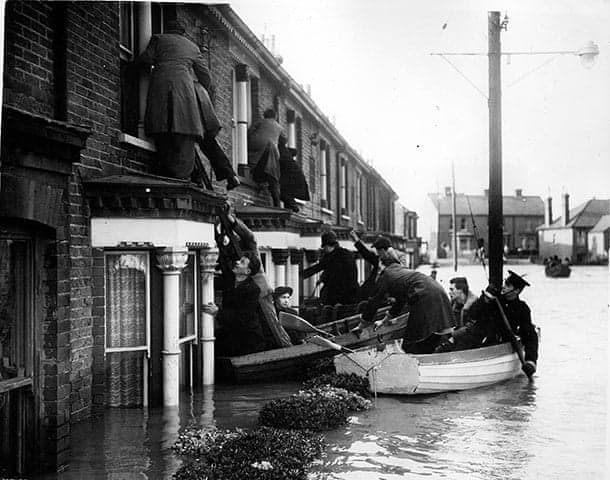It wasn’t until I suddenly looked at my phone yesterday, and realised it was 3.30pm, that I knew I was not going to get the government’s emergency alert. My phone was working at the time too.
Neither did Sarah.
Now I don’t believe the allegation on Twitter that this means we have been singled out to die by the government. But still it is a bit of a peculiarity.
But then my children both got theirs. I didn’t hear them – and it spooked my son, though he knew it was coming and knew what it was when it arrived.
I don’t quite know what to make of the whole idea. I note that Jacob Rees-Mogg has said that it was a waste of time and that he was turning off the relevant icon on his phone.
I also read the column by Sarah Vine – formerly Mrs Gove – in the Daily Mail called ‘why are ministers invading our phones with a tiresome emergency alert – yet ignoring the threat that could wipe out humanity?’
Many countries are now organising emergency alerts – and the right clearly feels differently about the whole idea in the USA. In Ron De Santis’ Florida, they accidentally tested their system at 4.45am!
But Sarah Vine’s question was a good one and it deserves an answer. So is her other one: “Can we – or for that matter, the government – realistically do anything about any of these emergencies they will be ‘warning’ us about.”
I know there are useful elements to these alerts. If there was a nuclear leak or floods, like for example those that hit the east coast on the night of 21 January 1953 – just before the last coronation, in fact.
This was the unprecedented event that sank the British Rail ferry Princess Victoria, which foundered off the Scottish coast, on its way between Stranraer and Larne.
Strangely, for such an overwhelming event, the memories of six decades ago have faded. Very few people would remember the events if it had not been for the fascinating and moving article that the architectural critic Ken Worpole wrote for the Open Democracy website to remember the sixtieth anniversary.
These days, there would be warnings about spectacularly high tides. The Thames Barrier would be raised. The Environment Agency spokespeople would fan out to the TV studios and epeople in danger would have been warned via text message – but not then. Back in 1953, the first that anyone knew of what was about to happen was when the 7.27pm train from Hunstanton to King’s Lynn ran into a wall of water and was hit by “a bungalow floating on the crest of the wave”.
The North Sea tide that night was the highest ever recorded and many of those who died simply awoke trapped in bed by water rising too fast to escape. Worpole paid tribute to the meticulous account published in 1959 by Essex County Council, and hails it as one of the great works of twentieth-century English social history: Hilda Grieve’s narrative, The Great Tide. He wrote:
“So vulnerable to disruption were communications at this time that many were already dead and their communities destroyed further up the coast, whilst along the Thames people slept soundly unaware of what was about to hit them.”
It is extraordinary that there are so few memories of a disaster that involved families and children dying of cold as they clutched onto their roofs.
That is clearly the kind of event when it would be useful to have a means of contacting people nearby.
There are three possible crises that really worry me now, and which the UK government remains silent about.
The first is the climate crisis – which obviously Sarah Vine needs to ignore if she is going to keep her job at the Mail.
And by the way, tens of thousands of people took to the streets of Westminster on Friday and Saturday, peacefully and happily, as part of the Extinction Rebellion demonstration, and were rewarded for it by virtually no mention in press or on TV.
There was also absolutely no mention by her or by anyone else of the second scary issue that now faces us – that Putin is now insane enough to be capable of pressing the nuclear button, which would plunge us all into a nightmare of heat and destruction.
He is certainly threatening to single out the UK for that.
Thank goodness we have Sunak, rather than either of his two predecessors as PM, to face this threat. But since nothing is being done about it by anyone, it seems to me – no plans for regional seats of government, no ‘Protect and Survive’ pamphlets, no deep shelters for the population – I am unsure what advantage that is.
We just get a blithe version of Sir Alec Douglas-Home’s “The British people are prepared if necessary to be blown to atomic dust”. So Boris Johnsonian in its establishment enochlophobia.
So I searched in vain for mention of either of these threats in Sarah Vine’s article. Instead she mentions the third issue – the threat from takeover by AI.
It worried her – as it does me – that the Google AI system Bard has taught itself Bengali apparently on its own initiative.
“Time to wake up and smell the lithium, guys,” she writes. “Before it’s too late.”
It is peculiar for the Mail to use language like this, but – in the end – I reckon that the threat from AI is very much less than the other two.





